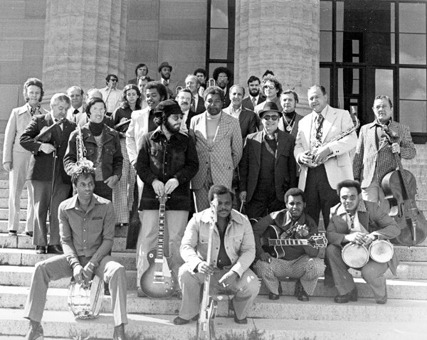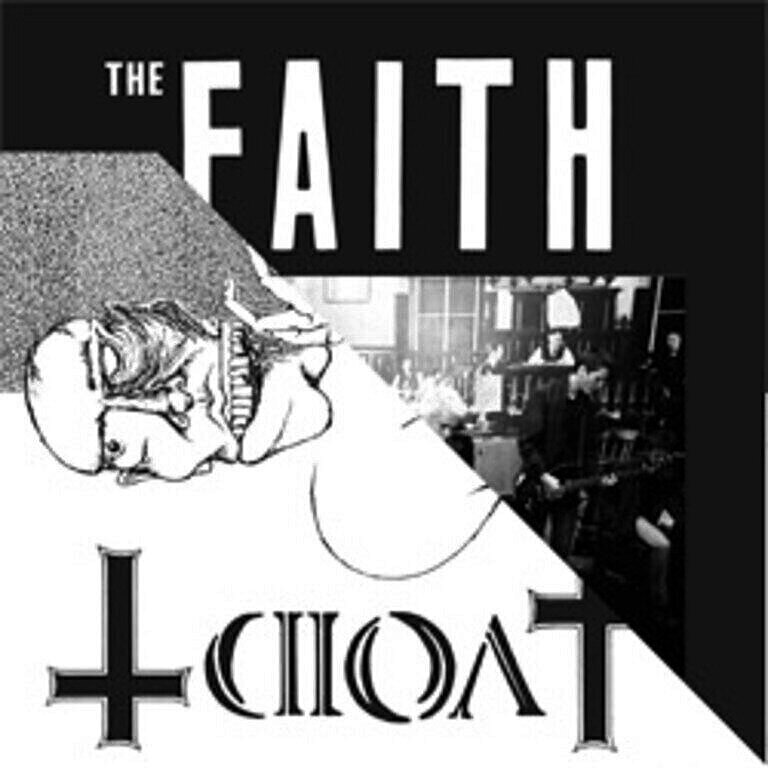Artist: Dexter Gordon
Album:
Go!
Year: 1962
Label: Blue Note
See My Video Review Of The Album
HERE
For an artist to "reinvent" themselves is without question one of the most rare and truly unpredictable feats that can be accomplished. As trends and styles change, an overwhelming majority of artists slip away from being relevant, and are only followed by the most devoted of fans. However, every once in awhile, and artist is somehow able to find success a second time, and the way in which this is achieved is so random and rare, that it is impossible to make any sort of general statement on "how" this is achieved. Yet even with this "reinvention" being such an anomaly, there is in fact one artist who accomplished this feat not once, but three times. Standing as one of the most important figures in the entire history of jazz music, one can almost follow the rise and fall of jazz trends through the unparalleled recordings of the one and only Dexter Gordon. From his early days, backing everyone from Nat King Cole to
Louis Armstrong to
Dizzy Gillespie, to his later years, in which he was one of the more controversial performers due to his personal life, there were simply no other tenor saxophone players of the "bop era" that played as beautifully or as brilliantly as the man they called "Long Tall Dexter." While his early recordings are unquestionably fantastic, there are few studio recordings that are as truly flawless, or carry the same power and feel as Dexter Gordon's monumental 1962 recording,
Go!
When it comes down to it,
Go! is all about mood, and few albums from any genre have been able to be as lively and outright appealing as one can experience on each of the albums' songs. Even when they are playing a somewhat slower or more soulful tune, it is the vitality within the quartet that becomes one of the keys to the overall greatness of the album. Much of this tone lives with the brilliant rhythm section of drummer Billy Higgins and bassist Butch Warren. Both of these players are onto themselves absolute jazz legends, and as a team they are without question one of the most impressive jazz pairings in history. Higgins has a dynamic flair that is far beyond almost any of his contemporaries, and it is the combinations, fills and overall style that he deploys on each song that in many ways stand as the defining sound of jazz drumming. In the case of Warren's bass-work, it goes a bit unnoticed as the original mix of
Go! has him slightly too far back in the overall sound. However, on the 1999 re-release, this problem is corrected, and one can fully appreciate the deep-grooving mastery that he brings to each of the songs. It is the way that these two lock in with the sound of pianist Sonny Clark that makes
Go! so spectacular, and there is no question that Clark's interplay with Gordon is one of the most impressive in music history. Clark brings a far harder and more aggressive approach to his playing than most of his peers, and yet it is the way that each musician clearly understands "their place" on every song that enables the overall product to become so mesmerizing.
However, while the trio behind him are without question one of the finest ever assembled, it is the performance of Dexter Gordon on tenor saxophone throughout the entire album that vaults
Go! to legendary status. Whether he is swiftly bouncing across the track on "Cheese Cake" or delivering some of the most stunning and soulful lines and themes on "I Guess I'll Hang My Tears Out To Dry," it is the contrast between these the two songs that shows the unmatched talent and range which Gordon possesses. The way in which Gordon rephrases and winds around the core riffs on every composition is nothing short of sensational, and in many ways, one need to only hear the album once to fully understand why Dexter Gordon remains such an important figure in the history of jazz music. These varying alterations and improvisations highlight Gordon's notorious ability to hold his own with any jazz player, and his creativity and sheer emotion are also highlighted on every second of the album. Furthermore, it is the fact that Gordon leaves enough space for the rest of his band to shine that shows that he fully understood that jazz was a "team effort," and it is the way that one can hear the musicians passing the lead around, and clearing enjoying the session, that pushes
Go! to the most revered status, and one can easily make the case that this album represents the finest moment in the entire career of Dexter Gordon.
While each of the four players is absolutely at the top of their talents, one can still argue that the most intriguing aspect of all of
Go! is the amazing mood which is created by the quartet. Truth be told, each song has an absolutely stunning live feel, and there are times when it seems almost inconceivable that this is a studio session. It is this reality which countless jazz musicians attempted to achieve, and yet once one hears it done "properly," the imitators are put into a clear perspective. This serves as a testament to the extraordinary talent and chemistry between the four musicians, and it is one of the main reasons that the album remains in such vaulted status all these decades later. Though one can easily understand that this mood is largely due to the players involved, one cannot overlook the fact that the record was produced by Blue Note Records founder, Alfred Lion, and this surely played some role in the albums' unparalleled mood. There is an upbeat freedom that runs throughout all of
Go!, and even for those who are not familiar with a great deal of jazz music, the record follows clear enough lines that it can be enjoyed by music fans from all generations and preferences. This final fact is a testament not only to the players involved, but the actual compositions they selected for the recording, and in every aspect, there has simply never been another album on par with Dexter Gordon's brilliant 1962 release,
Go!













